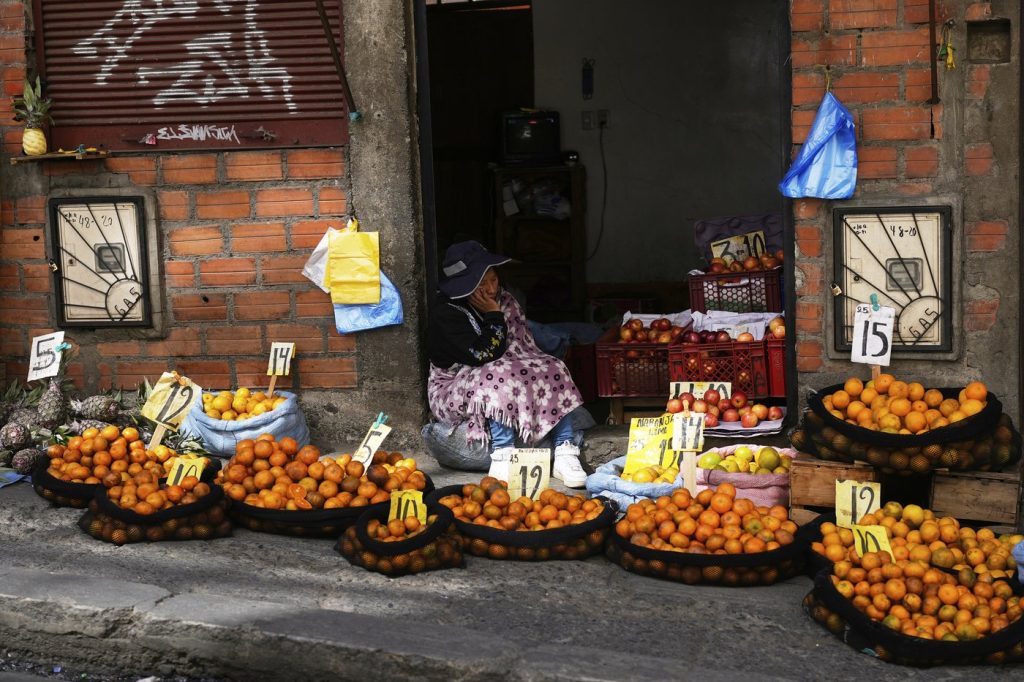Bolivians cast their votes on Sunday in a pivotal presidential and congressional election that may mark the decline of the long-dominant leftist party, the Movement Towards Socialism (MAS), and potentially lead to the election of a right-wing government for the first time in over two decades.
This election is considered one of the most significant and unpredictable in recent Bolivian history. Notably, approximately 30% of voters remain undecided as polling indicates a close race between the two leading right-wing candidates: multimillionaire business owner Samuel Doria Medina and former President Jorge Fernando “Tuto” Quiroga.
Despite the presence of leading right-wing candidates, a victory for the opposition is not guaranteed. Many long-time supporters of the MAS party, which has been weakened due to internal conflicts, are primarily based in rural regions where they often are underrepresented in polling data. The country is currently grappling with its worst economic crisis in four decades, with challenges such as fuel shortages, rising inflation, and diminishing access to subsidized basic foods spurring opposition candidates to present this election as a critical opportunity to change Bolivia's trajectory.
Analysts, including Daniel Lansberg-Rodriguez of Aurora Macro Strategies, have described the current situation as a "situational tinderbox" with the potential for significant unrest. He emphasizes that breaking the MAS party's political monopoly would push Bolivia into politically uncharted territory amid increasing polarization and economic instability.
Bolivia's future may follow a broader rightward shift seen in Latin America, where figures like Argentina's Javier Milei, Ecuador's Daniel Noboa, and El Salvador's Nayib Bukele have gained significant popularity. A shift towards right-wing governance in Bolivia could lead to a substantial geopolitical realignment, distancing the country from its ties with socialist governments like Venezuela and aligning it more closely with the United States, China, Russia, and Israel.
Doria Medina and Quiroga have openly supported the Trump administration and aim to restore Bolivia's relations with the United States, severed in 2008 when former President Evo Morales expelled the American ambassador. The right-wing candidates are advocating for foreign private investment to exploit Bolivia's significant natural resources, including its vast lithium and rare earth mineral deposits.
In response to the current economic situation, which Morales previously addressed by nationalizing the oil and gas industries and utilizing profits to alleviate poverty and improve infrastructure, his legacy is now in question. After three terms and an attempted fourth term that led to protests and his ouster, Morales has been barred from this election. Current President Luis Arce, once his ally, has also withdrawn from the race due to declining popularity.
In a controversial move, Morales has urged his supporters to deface ballots rather than support his party's candidate, distancing himself from the political process. The election features all 130 seats in the Chamber of Deputies and 36 seats in the Senate. Voting in Bolivia is mandatory, with approximately 7.9 million eligible voters.
Despite the apparent enthusiasm for change, voter interest remains low, reflected in sentiments expressed by citizens who feel disenchanted with the political landscape, remarking that candidates often do not address their concerns. Doria Medina and Quiroga have warned of the need for significant fiscal adjustments that may threaten existing subsidies, potentially inciting protests from the populace.
With potential for significant social unrest looming, the election may see a crucial runoff on October 19 if no candidate secures more than 50% of the total vote, or over 40% with a 10-point lead. This election stands as a decisive moment in Bolivian political history as it transitions from decades of leftist governance.











